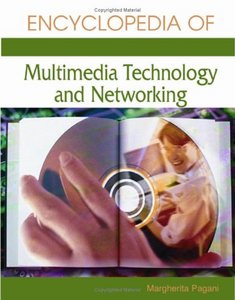The N-dimensional geometry and kinaesthetic space of the Internet
Murphy, Peter (2009) The N-dimensional geometry and kinaesthetic space of the Internet. In: Pagani, Margherita, (ed.) Encyclopedia of Multimedia Technology and Networking. Idea Group Reference, Hershey, PA, US, pp. 1042-1047.
![[img]](https://researchonline.jcu.edu.au/22559/9.hassmallThumbnailVersion/22559.jpg)
|
Image (JPEG) (Book Cover)
- Cover Image
Download (39kB) |
|
|
PDF (Accepted Version)
- Accepted Version
Download (182kB) |
|
|
PDF (Published Version)
- Published Version
Restricted to Repository staff only |
Abstract
[Extract] What does the space created by the Internet look like? One answer to this question is to say that, because this space exists "virtually," it cannot be represented. The idea of things that cannot be visually represented has a long history, ranging from the Romantic sublime to the Jewish God. A second, more prosaic, answer to the question of what cyberspace looks like is to imagine it as a diagram-like web. This is how it is represented in "maps" of the Internet. It appears as a mix of crosshatching, lattice-like web figures, and hub-and-spoke patterns of intersecting lines.
| Item ID: | 22559 |
|---|---|
| Item Type: | Book Chapter (Later Edition) |
| ISBN: | 978-1-60566-014-1 |
| Date Deposited: | 09 Jan 2013 23:07 |
| FoR Codes: | 20 LANGUAGE, COMMUNICATION AND CULTURE > 2001 Communication and Media Studies > 200101 Communication Studies @ 50% 08 INFORMATION AND COMPUTING SCIENCES > 0806 Information Systems > 080611 Information Systems Theory @ 50% |
| SEO Codes: | 97 EXPANDING KNOWLEDGE > 970108 Expanding Knowledge in the Information and Computing Sciences @ 50% 95 CULTURAL UNDERSTANDING > 9502 Communication > 950299 Communication not elsewhere classified @ 50% |
| Downloads: |
Total: 1732 Last 12 Months: 7 |
| More Statistics |



